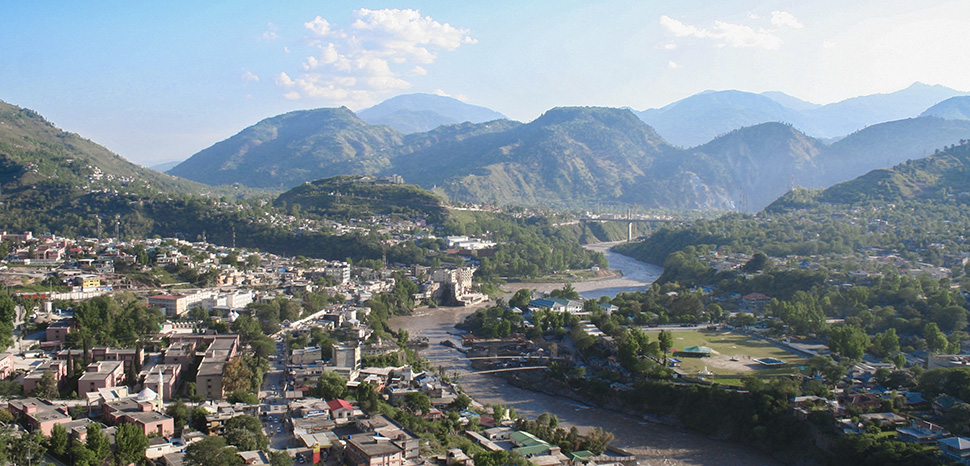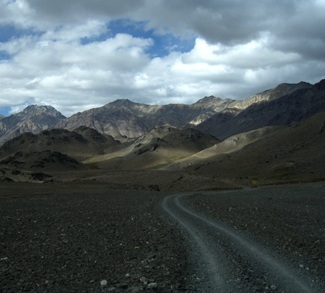Azad Jammu and Kashmir (AJK) has traditionally been a tranquil region where residents enjoy a serene way of life. However, the dynamics changed dramatically with the advent of the current government. Initially, there were glimmers of hope when Mr. Anwar Ul Haq (the current PM) had assumed leadership, and opposition became part of the government. The people had high hopes that the lingering issues left unaddressed during Tanveer Ilyas’ tenure as the former AJK PM would finally find resolution under the new governments. Furthermore, there was optimism that the concerns of constituencies represented by opposition-winning candidates would also be taken into account. Another pressing concern faced by the people was the scarcity and soaring prices of flour, which they anticipated would be effectively resolved.
However, the initial optimism surrounding the new government was soon overshadowed by a stark contrast in the unfolding situation. Regrettably, the situation took a downturn when the prime minister of AJK began to consolidate power and sideline his cabinet, igniting the first and still unresolved issue. Another source of tension emerged when the government employed force to quell a major protest by schoolteachers, subsequently banning their organization. Now, a third and most significant issue has emerged when numerous government employees have had their salaries halted. All this turmoil begs the question: Is the AJK government unable to address these challenges, or is the prime minister’s apprehension obstructing their resolution? Additionally, why is the government resorting to force as a first response to protests when it should be a last resort? Do the people’s demands lack merit or relevance? Lastly, it is imperative to explore the role of the government in addressing these issues and consider potential solutions.
Underlying Causes and Systemic Catalysts behind the Protests
Several factors drive the political and economic unrest in AJK, giving rise to widespread protests. We can employ various theoretical frameworks and approaches pioneered by politics and international relations scholars to dissect this issue.
The first framework that provides valuable insights into the government versus public dynamics is the “level of analysis” model, which categorizes the causes of conflicts into three primary levels: systemic, societal/state-level, and individual:
- Systemic causes encompass the impact of the global or international system on conflict initiation. In this context, global inflation emerges as a significant trigger for these protests, as people demand more affordable goods in response to rising prices.
- Societal/state level causes involve the conditions of the populace, their evolving narratives, and their contributions to the conflict. Here, economic challenges stand out as a major catalyst, exacerbated by the state’s inability to address these issues, thereby affecting the public. Secondly, the PM hasn’t yet to distribute the offices to ministers, which may be another issue of mismanagement by the government. This is leading to a conflict between the PM and his cabinet. Hence, the PM and cabinet are not on the same page with regard to resolving the people’s issues, and PM cannot hope to do it alone.
- Individual level causes pertain to leadership roles. In AJK, the prime mister’s authorization of brutal force against the masses to suppress protests could further exacerbate the conflict.
The second theoretical framework that sheds light on this situation is Maslow’s “hierarchy of needs.” According to this theory, conflicts are more likely to arise when people’s fundamental needs remain unmet. In AJK, the protests against soaring electricity and grocery prices, particularly flour, indicate a failure to address these essential needs, with the government resorting to force instead of constructive engagement.
Implications of the Political Turmoil and Protests
In delving into this complex issue, it is paramount to acknowledge that Kashmir remains a disputed territory, with this segment under Pakistan’s administration and a populace harboring a strong affinity for Pakistan. Conversely, a minority faction of sub-nationalists within AJK has sought to exploit this conflict for their purposes. Furthermore, there looms the spectre of Indian media and intelligence agencies harnessing this situation to further their interests and clandestine operations, jeopardizing not only the Kashmir cause but also Pakistan’s global image. It’s hardly unexpected that, in the coming days, the Indian media and sub-nationalist voices will assert that the conduct of the authorities, both in terms of law enforcement and governance, in Azad Kashmir, is marked by instances of brutality.
The second repercussion lies in the looming threat of civil unrest in AJK, as protests have spread throughout the region, with particular intensity observed in Muzaffarabad, Bagh and Rawalakot. Here, law enforcement employs harsh tactics to suppress dissent, leading to arrests of protest leaders. The prospect of a civil war would exacerbate human security and internal security challenges in AJK.
The third consequence manifests as an economic setback for AJK, as traders actively participate in the protests, transforming a peaceful demonstration into a widespread shutdown. Critical roads have been blocked, and there is a looming possibility of new blockades at entry points such as Kohala, which could escalate the economic turmoil in AJK.
Thus, a question arises: Could AJK be on the cusp of its own “AJK Spring,” mirroring the “Arab Spring”?
It is plausible given the growing disillusionment among the public and within the prime minister’s cabinet. Months have passed with no equitable power distribution within cabinet, as the PM is reluctant to share authority. Moreover, the issues fueling these protests affect not only the general populace but also government employees, including law enforcement agencies and police below grade 17 or those lacking special privileges. A further escalation could lead to a scenario akin to the 1979 Iranian Revolution, where bureaucracy and employees turned against the Shah. Similarly, such incidents occurred in the Arab region in 2011, resulting in the Arab Spring, when the masses started protesting against regional regimes. Likewise, if the situation further deteriorates in AJK, the masses would likely increasingly demand an end to the Anwar Ul Haq regime.
Policy Recommendations
The people’s demands are not unfounded, as rising prices, a faltering economy, and increased taxes directly impact their lives. Drawing from the philosophy of John Locke, there exists a social contract between the government and its citizens and the government is obliged to address the problems of citizens.
While the AJK government grapples with multifaceted challenges spanning economics, social issues, and security, these issues can be addressed to some extent. However, coercion against the public is not the solution. Instead, inclusivity in policymaking and a forward-looking approach are essential. To implement this strategy, PM Anwar ul Haq should engage elected representatives in resolving the issue and distribute offices and powers among the cabinet, acknowledging that all protesters are indigenous to AJK and have elected their representatives to address their grievances. In this regard, resolving disputes with elected members and initiating dialogues on government challenges is paramount because only the people’s representatives can make them understand the challenges on the part of the government and mitigate the issue.
Moreover, the government should recognize that while it may not meet every demand, some issues are genuine and require immediate attention. The prime minister and his cabinet should engage with the population to find middle-ground solutions, conveying the government’s commitment to addressing priority concerns while acknowledging the complexities of other issues. Eschewing the use of force is vital, as it exacerbates rather than resolves the situation.
This is a critical juncture to address these issues and avert far-reaching consequences.
The views expressed in this article belong to the authors alone and do not necessarily reflect those of Geopoliticalmonitor.com.




